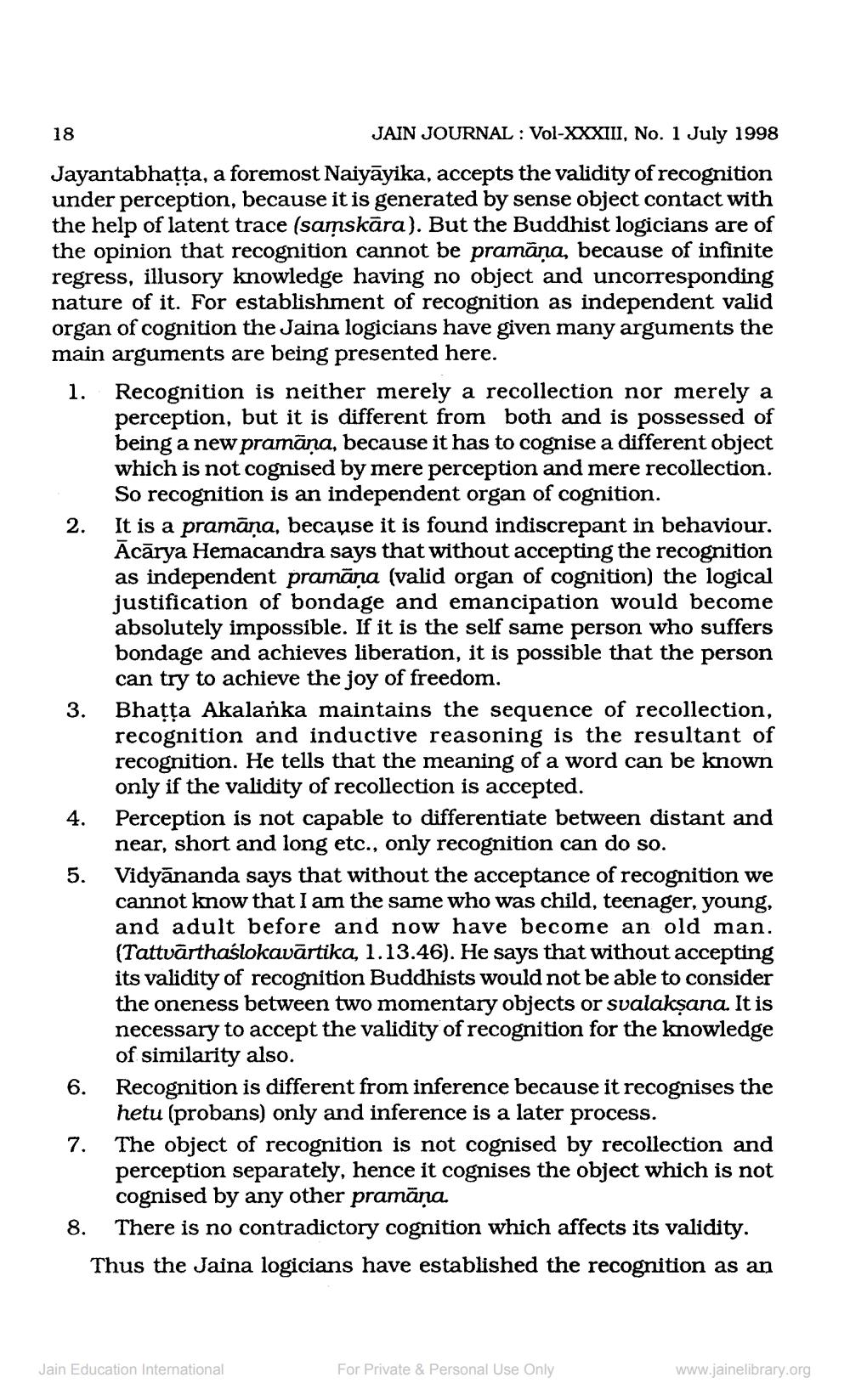________________
18
JAIN JOURNAL : Vol-XXXIII, No. 1 July 1998 Jayantabhatta, a foremost Naiyāyika, accepts the validity of recognition under perception, because it is generated by sense object contact with the help of latent trace (samskāra). But the Buddhist logicians are of the opinion that recognition cannot be pramāna, because regress, illusory knowledge having no object and uncorresponding nature of it. For establishment of recognition as independent valid organ of cognition the Jaina logicians have given many arguments the main arguments are being presented here. 1. Recognition is neither merely a recollection nor merely a
perception, but it is different from both and is possessed of being a new pramāna, because it has to cognise a different object which is not cognised by mere perception and mere recollection.
So recognition is an independent organ of cognition. 2. It is a pramāņa, because it is found indiscrepant in behaviour.
Ācārya Hemacandra says that without accepting the recognition as independent pramāņa (valid organ of cognition) the logical justification of bondage and emancipation would become absolutely impossible. If it is the self same person who suffers bondage and achieves liberation, it is possible that the person can try to achieve the joy of freedom. Bhatta Akalanka maintains the sequence of recollection, recognition and inductive reasoning is the resultant of recognition. He tells that the meaning of a word can be known only if the validity of recollection is accepted. Perception is not capable to differentiate between distant and near, short and long etc., only recognition can do so. Vidyānanda says that without the acceptance of recognition we cannot know that I am the same who was child, teenager, young, and adult before and now have become an old man. (Tattvārthaílokavārtika, 1.13.46). He says that without accepting its validity of recognition Buddhists would not be able to consider the oneness between two momentary objects or svalaksana. It is necessary to accept the validity of recognition for the knowledge of similarity also. Recognition is different from inference because it recognises the
hetu (probans) only and inference is a later process. 7. The object of recognition is not cognised by recollection and
perception separately, hence it cognises the object which is not
cognised by any other pramāņa. 8. There is no contradictory cognition which affects its validity.
Thus the Jaina logicians have established the recognition as an
3.
6.
Jain Education International
For Private & Personal Use Only
www.jainelibrary.org




